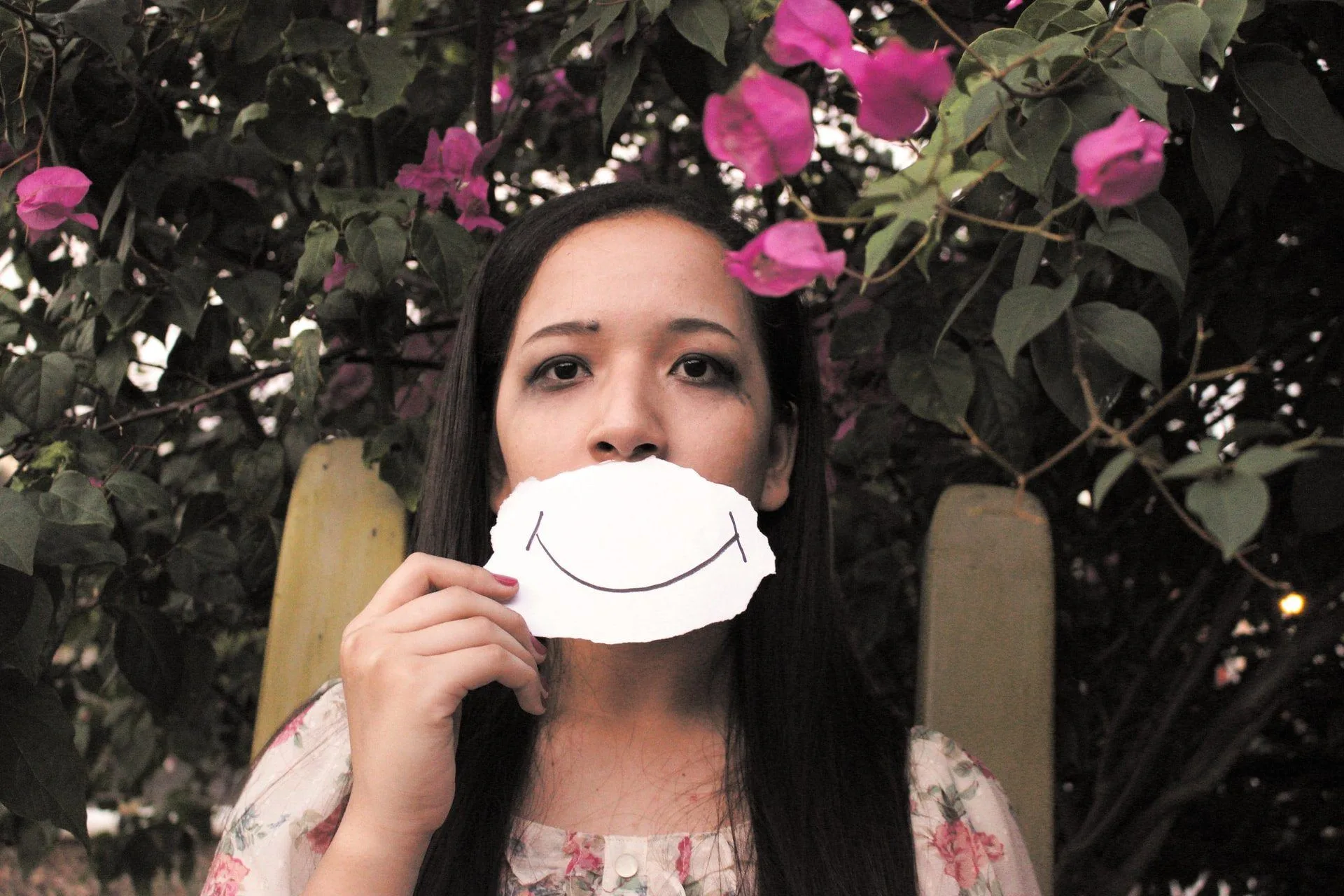We all know what it’s like to paste a fake smile on our faces when in reality we might be feeling quite unhappy. We use a reflexive smile as a coping mechanism to avoid expressing our true feelings to casual acquaintances. It’s just easier to pretend.
But while that phony smile is hiding the symptoms of depression, it can be somewhat dangerous. Smiling depression is the term used for someone wearing a smile on the outside while experiencing depression on the inside. By hiding their depression, not just from the world but often from themselves as well, there is an increased risk of suicide.
This is because unaddressed depression is likely to worsen over time. The longer that the condition is not treated, the more the symptoms are apt to increase in intensity. Along with the increasing sadness and hopelessness come possible thoughts of suicide, something called suicidal ideation. If you or a loved one seems to be experiencing smiling depression, it is important to see a doctor or therapist who can guide you back to wellness.
Signs Of Depression
According to the National Alliance on Mental Illness, depression is the second most prevalent mental health disorder, affecting over 19 million Americans each year. The DSM-5 lists nine signs or symptoms of major depressive disorder. These include:
- Persistent feelings of sadness, hopelessness, or despair
- Loss of interest in activities once enjoyed
- Changes in eating habits; sudden weight changes
- Changes in sleeping habits, such as sleeping too much or experiencing insomnia
- Inappropriate feelings of worthlessness, shame, or guilt
- Slowed movements
- Difficulty concentrating, indecisiveness, unable to function
- Fatigue
- Preoccupation with thoughts of death or suicide
Depression is diagnosed if a minimum of five of these criteria are present and have persisted for at least two weeks.

Photo by Ikowh Babayev from Pexels
About Smiling Depression
Certain personality traits can increase the chances of having smiling depression, also known as high-functioning depression. People that tend to be ambitious, perfectionist types are more likely to try to hide their mental health condition from others.
They may think that revealing their mood state is a sign of weakness—of not having it all together. Some may simply not want to be a burden to their friends or family members. Or, they may be accustomed to being viewed as a highly productive person, and resist having that façade compromised in fear of losing their job.
People with smiling depression may not even realize they are suffering from depression. They may be so committed to appearing to be fine that they manage to hide reality even from themselves. In doing so, they do not receive the treatment they need.
But this is exactly why smiling depression is dangerous. In an effort to hide the true state of their mental health, they only prolong the disorder and risk it becoming worse. While the condition may seem stable, similar to dysthymia, another term for persistent depressive disorder, the reality is that depression can possibly be worsening. This prolonged state of depression can result in a heightened risk for suicide.
The Warning Signs Of Smiling Depression
Someone who struggles with smiling depression is often able to pull the wool over people’s eyes. They may be able to hide their struggles publicly but may let their guard down in the presence of those they are closest to. These are the folks who can pick up on the signs of depression and steer them toward help.
While someone with smiling depression will be able to hide many of the basic symptoms of depression, they may inadvertently give away some clues that all is not right. Some of these clues might include:
- Substance abuse: Many who struggle with depression will self-medicate with alcohol or drugs.
- Warning signs of suicide. The individual might begin giving away their favorite possessions, start putting their affairs in order, or begin researching techniques to complete suicide.
- Isolation. Trying to keep up the guise that everything is alright is exhausting, so the person may begin to isolate and withdraw from loved ones.
Pay close attention to the signs your loved one is exhibiting, and be ready to guide them to a provider who can evaluate their mental health state.
Getting Help For Smiling Depression
It is never wise to ignore the signs of smiling depression or any form of depression. The risks are too high. Fortunately, there are evidence-based therapies that, when combined with medication, can significantly reduce symptoms.

Photo by Alex Green from Pexels
Depression treatment begins with admitting there is a problem. For someone with smiling depression, this step is a tough one to take. But acknowledging the problem can, at the minimum, help improve your quality of life.
Psychotherapy, such as cognitive-behavioral therapy, interpersonal therapy, psychodynamic therapy, or group therapy, can help you or your loved one identify the core factors that might be contributing to depression. Antidepressants can help modify serotonin levels and bring relief for depression symptoms.
How Stress Management and Lifestyle Changes Can Help
Therapy and medication form the core treatment plan for helping someone with smiling depression, but these treatments can be enhanced through lifestyle changes. Consider adding these complementary actions to your treatment plan:
- Holistic methods: Learn how to quiet the mind and reduce stress through a range of holistic activities. Adding a couple of these to your daily routine can help control stress, which will help improve your overall mood. Try taking up yoga, practicing mindfulness meditation, therapeutic massage, journaling, or deep breathing techniques to manage stress levels.
- Exercise: Add regular exercise to your schedule for improved physical and mental health. Consistent exercise provides immense benefits, such as reducing stress, enhancing mood, and improving sleep quality.
- Nutrition: Avoid caffeine and sugar crashes by moderating intake of these categories. Keep your diet rich in omega-2 fatty acids, lean proteins, whole grains, and lots of fresh fruits and vegetables for optimum brain health.
It is truly possible to overcome depression and return to a fulfilling and enjoyable life. Reach out and get the help you need to reclaim your joy today.
About The Author

Steven Booth
Steven Booth is the CEO and Founder of Elevation Behavioral Health in Agoura Hills, CA. He earned his B.A. from the University of California, Santa Barbara, in Economics. Before helping to co-found Elevation Behavioral Health, Steven worked in both private and public accounting. Like many others, Steven has seen firsthand the destruction that addiction can inflict on family and friends.
He has also witnessed the extraordinary changes that can be made when addicts receive the necessary treatment. His passion is providing outstanding mental health care through his facility, and improving the quality of life of clients.



![women [longevity live]](https://longevitylive.com/wp-content/uploads/2020/01/photo-of-women-walking-down-the-street-1116984-100x100.jpg)










